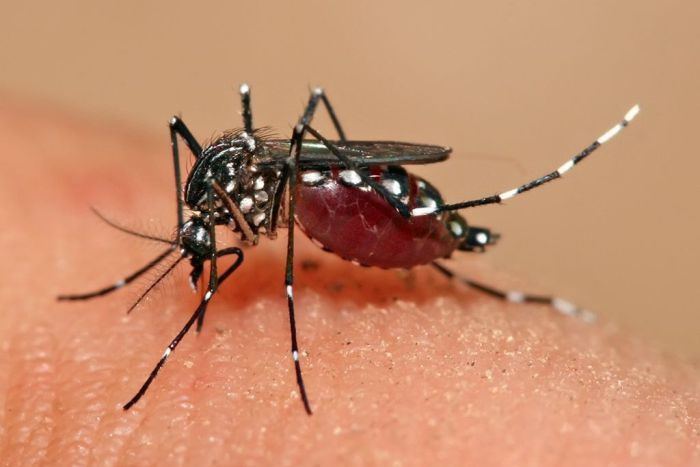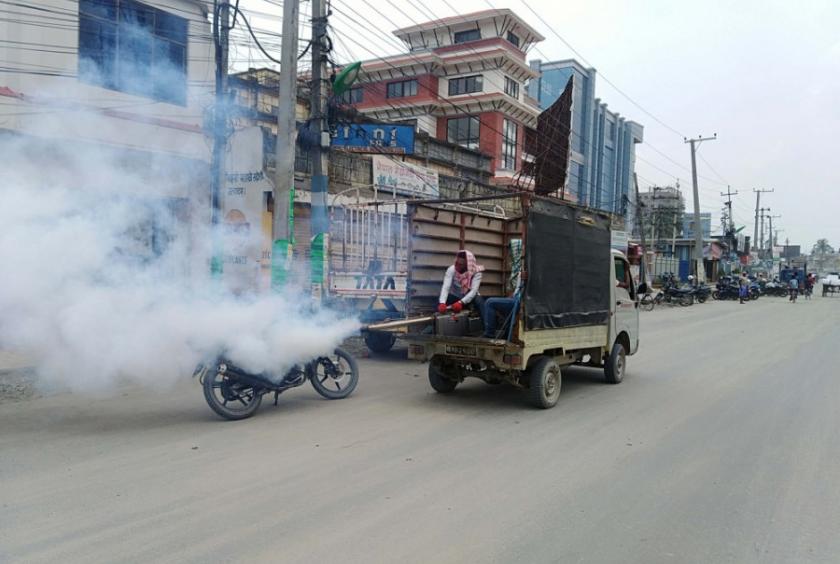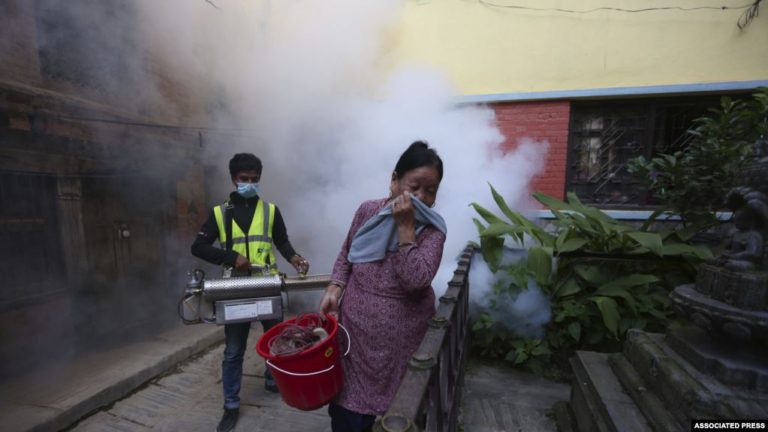By Om Tat Sat,
In 2016, we first heard of a person who died of Dengue in my home town Hetauda. That was startling for all of us. We had accepted Dengue to be a problem in the southern region. Hence, when there was a call for dengue solution projects internationally, we submitted one that envisioned mobilizing all the schools in the vulnerable areas to be educated about dengue and then designed extra-curricular activities allowing the students to launch activities to control all the possible venues for mosquito breeding in their neighborhood. “No habitable place, no mosquitoes, no Dengue” was our motto. We were listed as the top 15 finalist, but the prize went to the winner.

Our idea would have been very effective in Nepal. But who cares? The government is happy to make grand splashing news by mobilizing the police and the army to fight the mosquitoes. What great insight! The simplest solution to this problem would have been preventative measures that each student in Nepal could have enthusiastically participated in and start caring for their society from an early age. From our own experience, students have acted upon our environmental campaign before and received international honor.
Now, the inevitable has happened.
This year dengue has defeated the government. This vector-borne disease started in Dharan on May 13 and has spread to 56 districts of Nepal. Six of them are termed to be at the epidemic level. What was considered to be a hot Terai region problem is now in the mountainous Manang, beyond the Himalayas. In 55 days only, it reached 56 districts and caused 6 deaths, 8000 visited hospitals across the nation.

What is the reason for this massive government failure? It has claimed to increase the budget to fight against this illness. Three levels of administration are supposed to be involved through government and non-government sectors to tackle the threat. Yes, the trend is not good.
The main reasons could be emulated as thus: Lack of awareness, lack of prevention, and lack of seriousness. It would be normal if we start seeing blames being thrown, but the local government has failed “bigly.” It could be because they are distracted savoring the new taste of political power that allows them to disburse money and perks to themselves in creative ways. When would they even see the impending danger in their political radar? Would they be concerned about community issue? Are they bothered about effect of climate change on Earth? The answer to both of these questions would emphatically be a big “No.”
Could they have formed a taskforce to counter the problem and eradicate the threat? It is doubtful. The first thing that is required to handle such an issue is not present in Nepal’s administrative body. Let me just narrate another story.
In 2018, our team witnessed that the popular trail to a temple in Hetauda was littered with garbage, mostly plastic, all the way to the top of the hill. There was not a single litter bin to dispose of trash from the thousands of pedestrian who use the trail for various reason. So, we mobilized the students from nearby schools and conducted awareness classes to initiate weekend cleaning campaign of the trail. Students came dozens at a time, and we placed used recycled sacks along the way, 46 in total in the kilometer long hiking trail.
On the fourth Saturday, one of the hikers stopped our youth team and started asking questions. We informed him of our campaign, and he was very impressed. He thanked us and enlightened us about him being the mayor of the city. He invited us to visit him in office to develop a plan and to encourage out effort. We followed his instruction and presented a proposal to mobilize all the schools in the city to enhance the cleanliness and appeal of the city. Guess what happened?
No response.
Hence we can conclude the sad reality of Nepal. Not only do the elected leaders and administration not take action on threats, they do nothing to take preventative measures, nor support those who are making the effort.
People get discouraged, but the mosquitoes do not. That is why the gang of Aedes, the mosquitoes that transmit the infection through biting one individual at a time, is winning.
We could learn from these mosquitoes.
The writer is a graduate of Arizona State University in Political Science. He is working as a social activist and motivational speaker for students across Nepal since 2007.
The views and opinions expressed in this article are those of the author and do not necesarily reflect the official policy or position of Nepalisite.






















